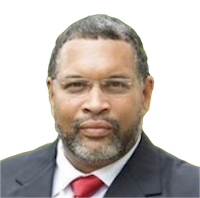There are moments in history when a people are faced with a choice — either weather the storm and wait for the winds to die down, or harness the moment to build something stronger, clearer, and more aligned with their collective future. We are in one of those moments now. Black America is not simply under attack — we are being tested.
Across the country, rollbacks on civil rights, attacks on diversity and education, assaults on our historical memory, and economic destabilization are taking new and sophisticated forms. But beneath the political strategies and cultural scapegoating lies a deeper truth: the collective health of our people is in jeopardy — mentally, spiritually, and communally.
While I fully acknowledge the external forces working against us — racism, miseducation, policy violence, and historical erasure — I believe the most urgent and neglected battlefield is internal.
Let me be direct: the mind is the foundation of everything. Our thinking shapes our behavior. Our behavior shapes our lives. And our environment — both past and present—shapes how we think. If we don’t take control of our thoughts, we’ll keep making the same decisions, accepting the same limits, and recreating the same conditions — generation after generation.
“conceptual incarceration” — … if we don’t call it what it is — we’ll keep trying to fix symptoms without treating the root.
This is deeper than politics. This is about our freedom.
We don’t talk enough about the mental prison many of our people are in. Wade Nobles called it “conceptual incarceration” — when the mind is shaped by ideas that don’t come from us, don’t serve us, and don’t reflect who we truly are. And if we don’t talk about it out loud — if we don’t call it what it is — we’ll keep trying to fix symptoms without treating the root.
We’ve been taught to survive, not to be whole. We’ve been conditioned to hustle, not to reflect. And as a result, too many of us are brilliant, but broken. Gifted, but guarded. Present, but disconnected.
And here’s the hard truth: fractured leadership cannot protect a fractured people.
For too long, we’ve tried to solve systemic problems with programs that ignore internal damage. We’ve launched initiatives without clarity, built partnerships without trust, and invested in policy without people. We can’t afford to do that anymore. If we are to rise — not just survive — we must do the internal work to rebuild from the inside out.
Let me be clear. I’m not saying that structural racism is our fault. I’m saying that regaining control of our thinking is our responsibility.
"Our trauma has a legacy — but so does our genius."
We must reconstruct the self before we reconstruct the city. We need emotional literacy as much as financial literacy. We need cultural clarity as much as civic strategy. Because our trauma has a legacy — but so does our genius. And the only way forward is through internal reconstruction.
This is not about soft talk or therapy buzzwords. This is about building the mental, emotional, and spiritual infrastructure that can hold the weight of our progress. When our people are walking around in survival mode — brilliant, gifted, but unclear — we keep reproducing cycles of confusion, violence, and loss.
We need a new blueprint. One that begins with:
- Mental clarity—Creating space for our people to unlearn, reflect, and reclaim their voice.
- Cultural grounding—Teaching our children who they are before the world miseducates them.
- Spiritual rootedness—Not religion for control, but connection that steadies us beyond circumstance.
- Economic interdependence—Building trust economies rooted in service, accountability, and mutual respect.
- Relational repair—Restoring trust between black men and women, across generations, and within families.
None of this is theoretical. It’s urgent. I see it in my students. In my neighbors. In myself.
If you want to understand where we are as a people, look no further than the emotional condition of our young people. Some are brilliant and bold. But many are numb, disconnected, and unsure of who they are or why they matter. If we don’t help them refocus, we will leave behind a generation that confuses survival with freedom.
This is our time. Not to beg. Not merely to resist. But to transform. Let us turn this storm into our soil. Let us build, not from fear, but from clarity. Because our future depends not just on what we fight against—but on who we’re willing to become.
• • •• • •
 Dr. Timothy D. Goler is Assistant Professor of Sociology and Urban Affairs at Norfolk State University. He also serves as the Director of Research at NSU’s Center for African American Public Policy. A native Clevelander, he hails from the city’s Glenville neighborhood and is co-founder of PolicyBridge.
Dr. Timothy D. Goler is Assistant Professor of Sociology and Urban Affairs at Norfolk State University. He also serves as the Director of Research at NSU’s Center for African American Public Policy. A native Clevelander, he hails from the city’s Glenville neighborhood and is co-founder of PolicyBridge.













